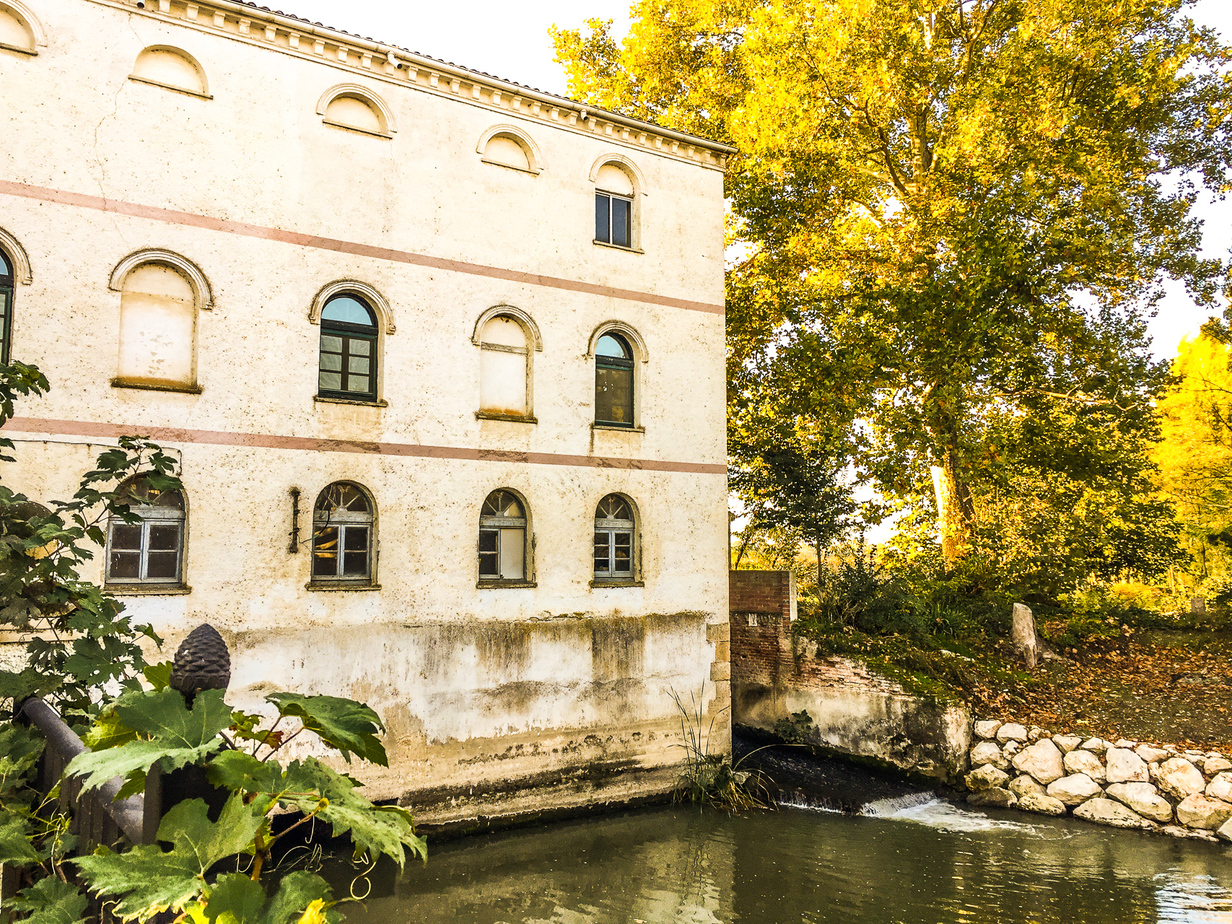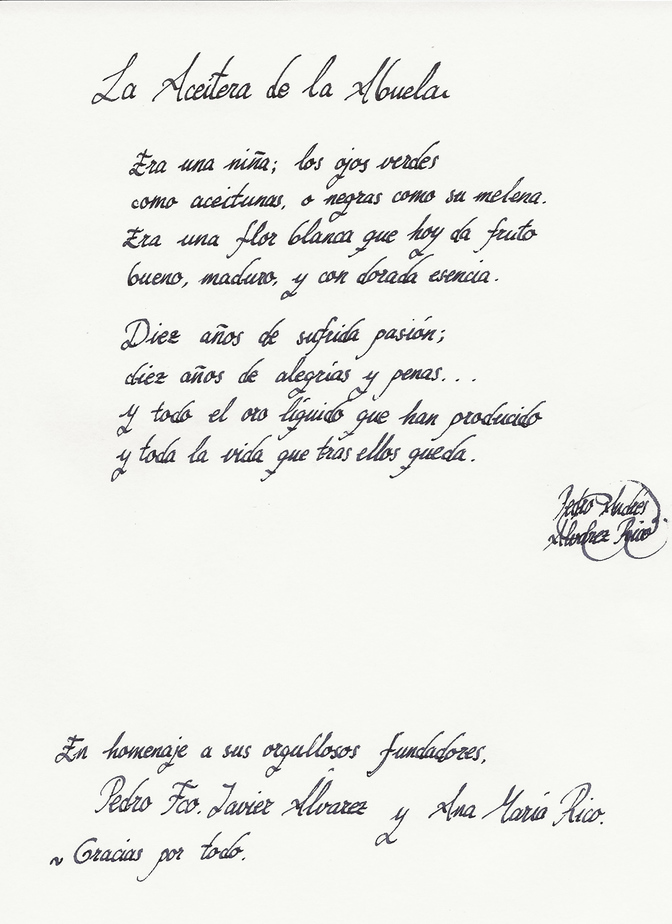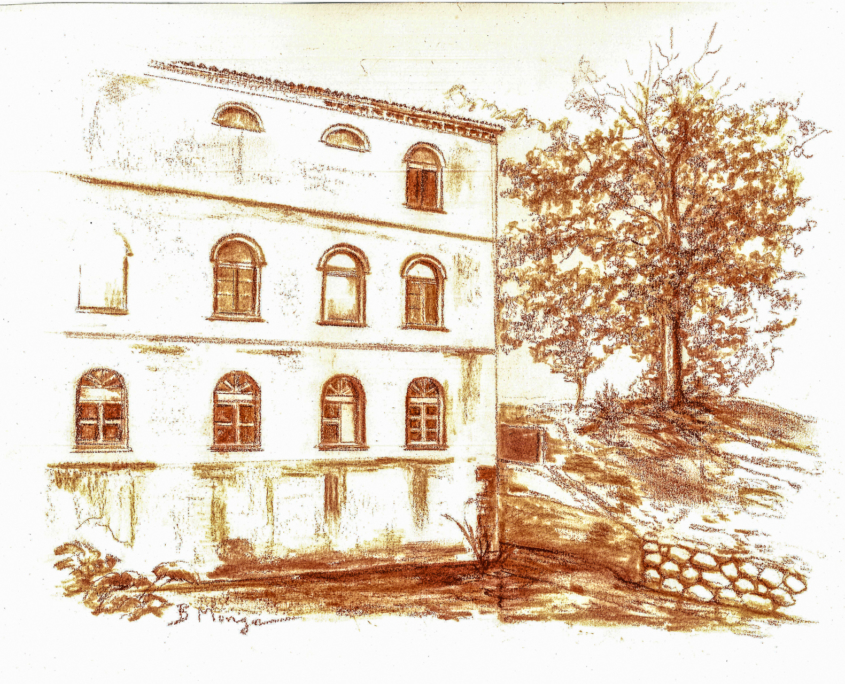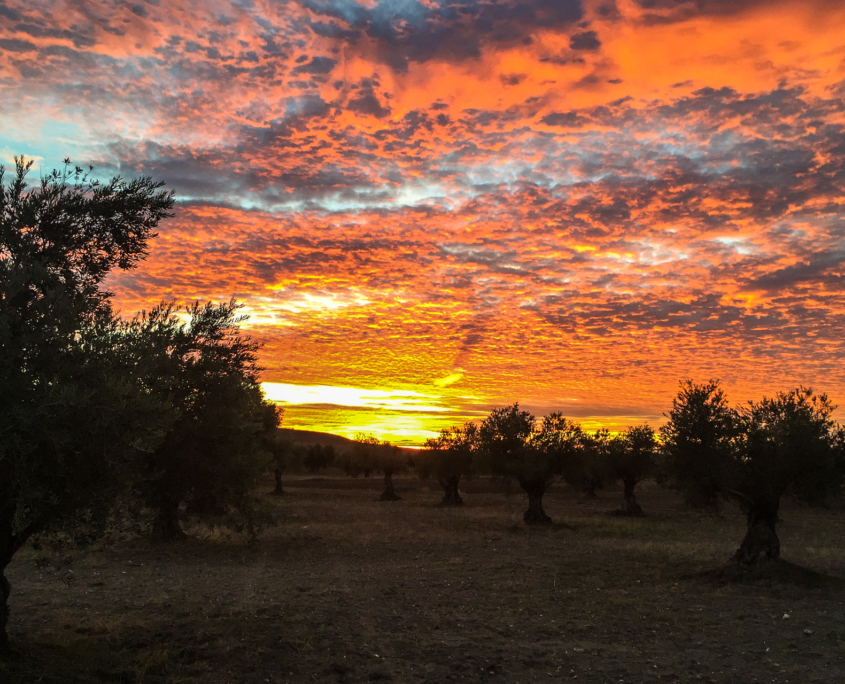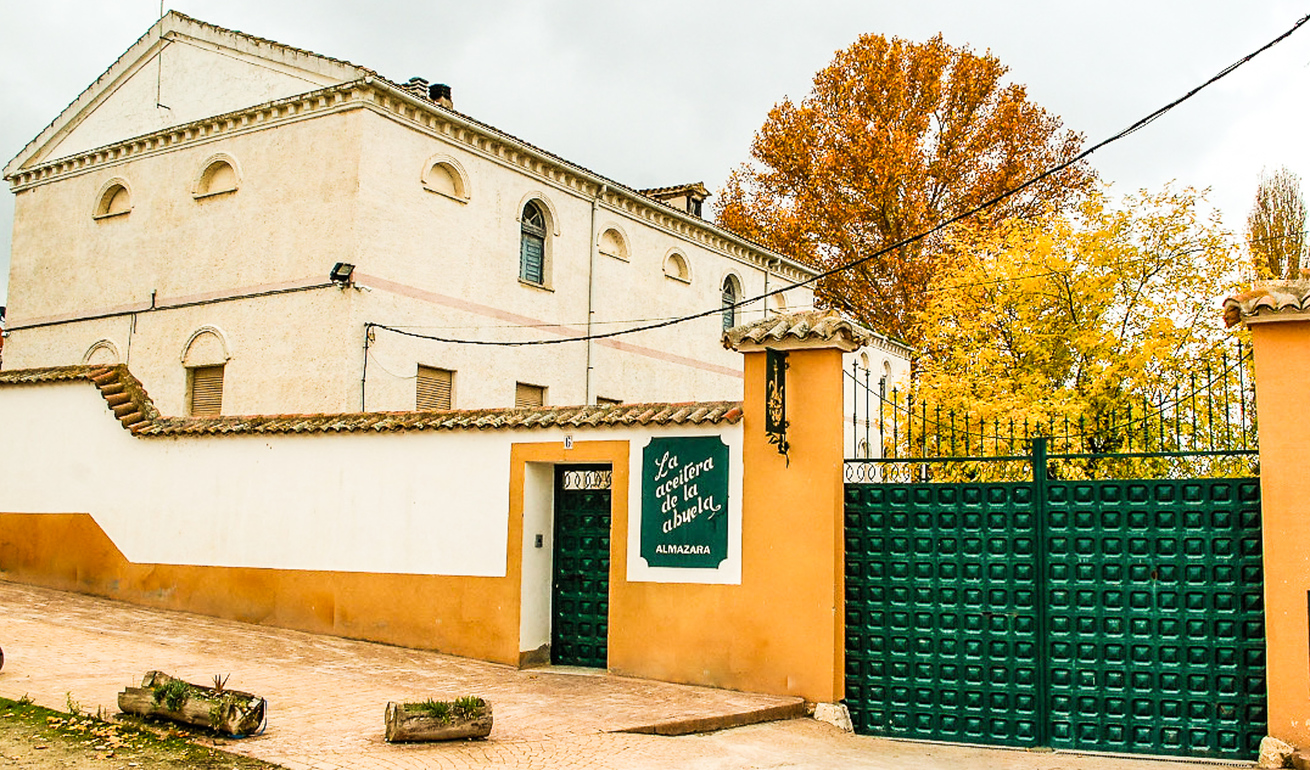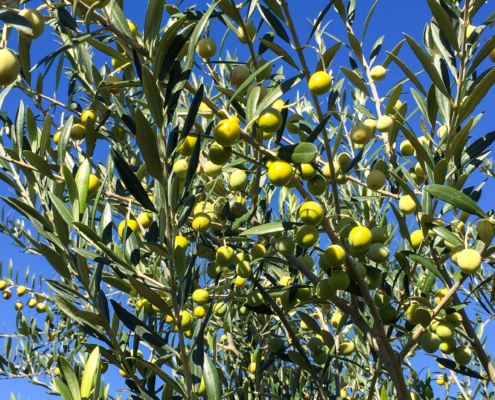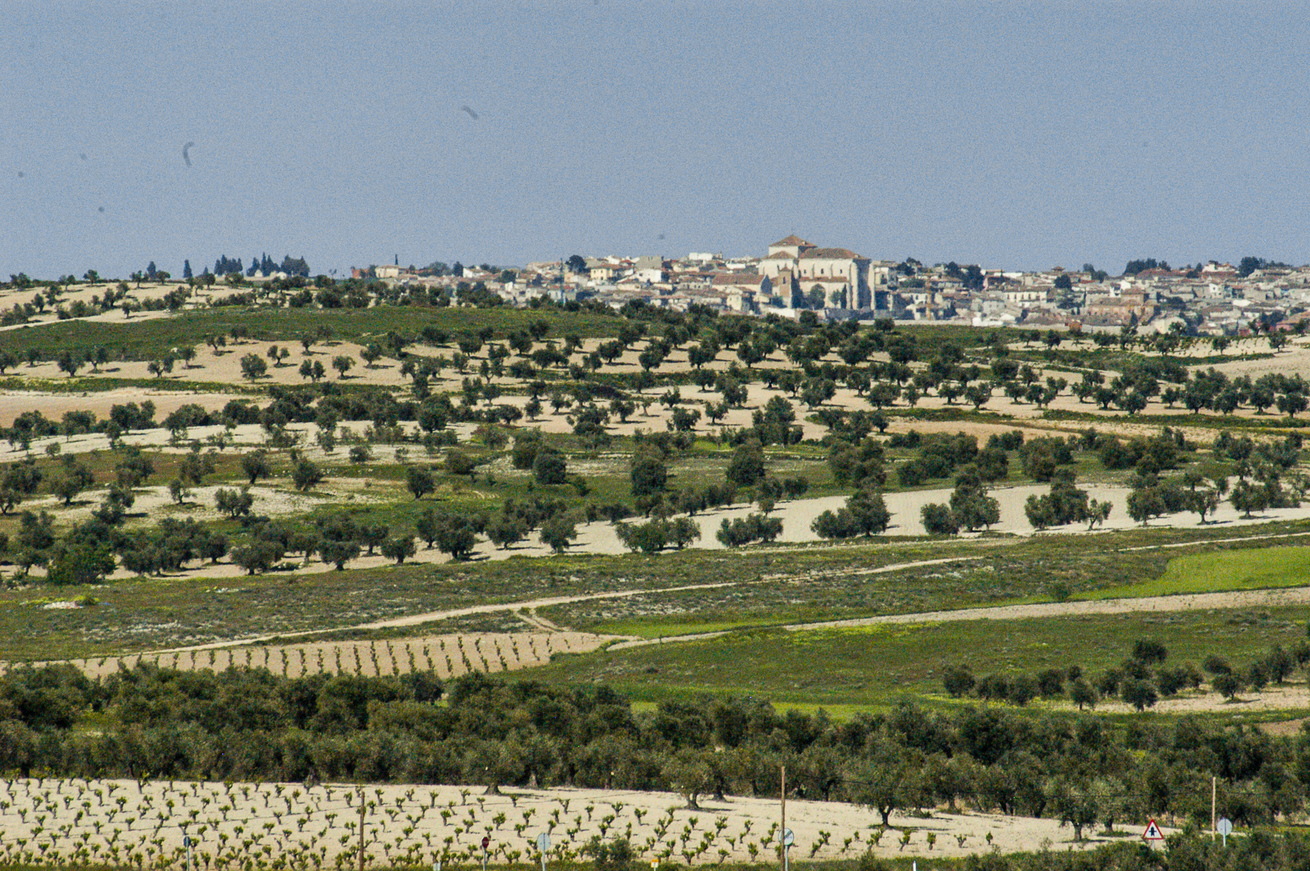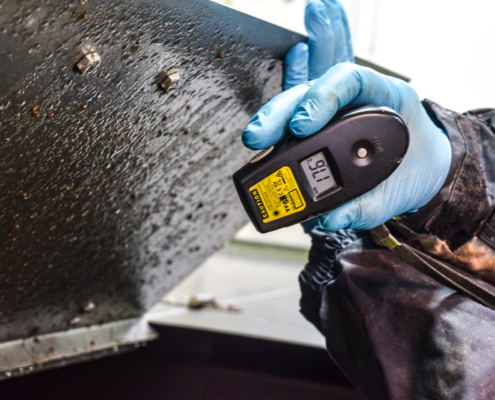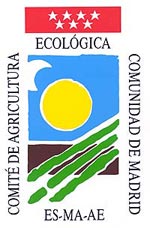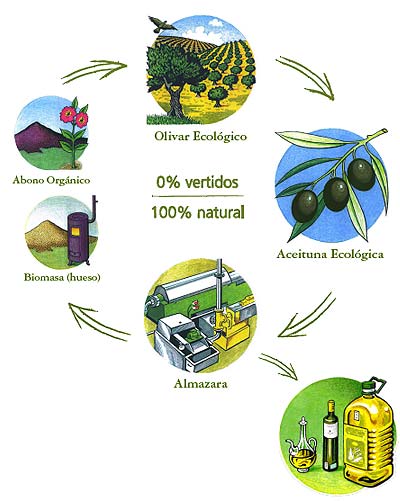In this post, Pedro Álvarez and his son Pedro Andrés tell you all about La Aceitera de la Abuela
The history of La Aceitera de la Abuela
Migration
La Aceitera de la Abuela takes its name from Mrs. Patrocinio Ruiz, the first owner of the land on which our oil mill now stands. The story begins over a hundred years ago. As life was not easy in the tiny village of Titulcia, my grandparents, Alfonso and Patrocinio, travelled to Cuba seeking better opportunities, taking with them their love of hard work and sacrifice that makes this family special. In this new adventure, they set up a small fruit business and managed to make a fortune.
Return
When fortune was smiling on them, they saw it was time to return to the village, their home. They came back to Titulcia, to the banks of the Tajuña and Jarama rivers. They bought a large farm in the village, which included an old flour mill known to the locals as the “Fábrica de Abajo” (literally, the factory down below). They continued to demonstrate their pioneering spirit by starting up both a hydroelectric plant and the flour mill. The plant was fed by the River Tajuña, which irrigates the land around Titulcia. They supplied electricity to the entire village for years with this sustainable project. This was a few years before the Spanish Civil War broke out.
Then came the Civil War, when you had to grin and bear it.
The Civil War was devastating for the village and the community of Titulcia. However, this family hung on and survived the adversities that came during and at the end of the war, again with unimaginable effort and sacrifice. Their mill was the only building left standing after this awful event. They worked their fields, mastering the secret arts of agriculture, bringing wealth to the village and its people and enriching its tradition and legacy. They were always pioneers, putting into practice their big ideas and innovations.
The next generation
In the seventies, the eldest son of Patrocinio and Alfonso, Andrés Rico, took over the management of the estate from his parents. Keeping alive and adding to the family legacy. After Andrés’ death, his daughter Ana María, Patrocinio’s granddaughter, inherited the mill and her grandparents’ and father’s legacy. She and her husband Pedro Álvarez decided to embark on a new adventure: Increasing the size of the olive groves on the family farm. In keeping with their innovative and environmentally friendly ideas, they turned to organic farming in the mid-nineties. In spite of pioneering organic farming in Madrid, they never saw the fruits of their labour properly appreciated. The market turned its back on this method of cultivation.
The birth of La Aceitera de la Abuela
Faced with this situation, La Aceitera de la Abuela was born, in homage to our mythical grandmother Patro. It was the first oil mill in the Madrid region to produce only organic olive oil. The young company built by Ana and Pedro was founded on a love of hard work, sustainability and balance with nature. And with tradition and innovation as its hallmark.
These are the essential traits of the firm, hidden behind the name “La Aceitera de la Abuela”. This young company remembers its past with pride and looks forward to the future with expectation. And it is still growing today under Pedro and his young son Pedro Andrés.
Adding yet another fruit grown from local seeds and nourished by years of experience and wisdom, every drop of sweat that has dripped onto this ground and the essence of nature. So as to be able to share it with people today, and tomorrow.
How we work at La Aceitera de la Abuela
Receiving the olives
At the mill we treat our olives with loving care and attention to their very nature. By doing so, we are seeking to produce olive oil that has a truly genuine body, soul and taste. By selecting the raw materials from the very beginning, we produce our liquid gold with the best olives from the Region of Madrid, picked when perfectly ripe. With delicate, unrelenting work, we pick the olives off the trees and take them to the mill, where they follow a naturally good, necessary and sustainable process, the one used to produce organic EVOO. It goes further than the normal production process, to the healthiness inherent in olive oil…
Producing the oil
Our way of making oil is based on a centuries-old farming tradition that combines experience, wisdom and state-of-the-art technology. It is this art, buried in the heart of our olives and our master craftsmen, that flows into and gives the flavour to our oil. To quote the great gurus of olive oil production: The best oil is contained in olives. The secret of its production lies in not damaging them. Based on this principle, when producing the oil, we sacrifice the possible yield from the olives to get the best quality for our olive oil. We therefore obtain lower yields, but so as not to damage the green juice. In this way, we reaffirm and give meaning to the term “liquid gold “ as applied to olive oil. Not only do we give it a high value but we also bring to it a brilliant, exotic and very attractive taste.
Our slogan is “from the olive to the table“. To bring out all the characteristics in our product, we must start by taking care of our olive trees and continue to care for the olives at the mill. From the moment the olives enter the mill until the OEVOO drips into the tanks. By ensuring that all the machinery in the mill is cleaned every day. Only with hot water, with no gels or chemical cleaning products, so as to prevent unwanted odours. Using this method, we prevent the essential taste of our juice from being tainted by external aromas.
Temperature is a key factor in the process
At La Aceitera de la Abuela we rigorously monitor the temperature parameters during the process. Always producing the oil at ambient temperature, and rarely going over 20ºC (8ºC below the maximum permitted by the regulations for cold pressing). And by storing the final product in inertised tanks, away from the air, we keep our oil in perfect condition. So, by respecting its nature to the maximum, we obtain liquid gold. With the genuine taste, quality and healthiness that is found in the olive hanging on the tree.
Closing the sustainable loop
At our oil mill, we also close the sustainable loop by producing zero waste and zero discharges. Firstly, the olive stones are used as biofuel to heat the water used to clean the mill’s machinery. Secondly, the mixture of pomace and vegetation water, which is considered to be waste by many people, is mixed with the olive leaves to make compost. Later on, this compost will be used as organic fertiliser for our olive groves, returning it to the soil to be included in the loop once more. Sustainability following the tradition and experience of those who best know the secrets of the fields.

